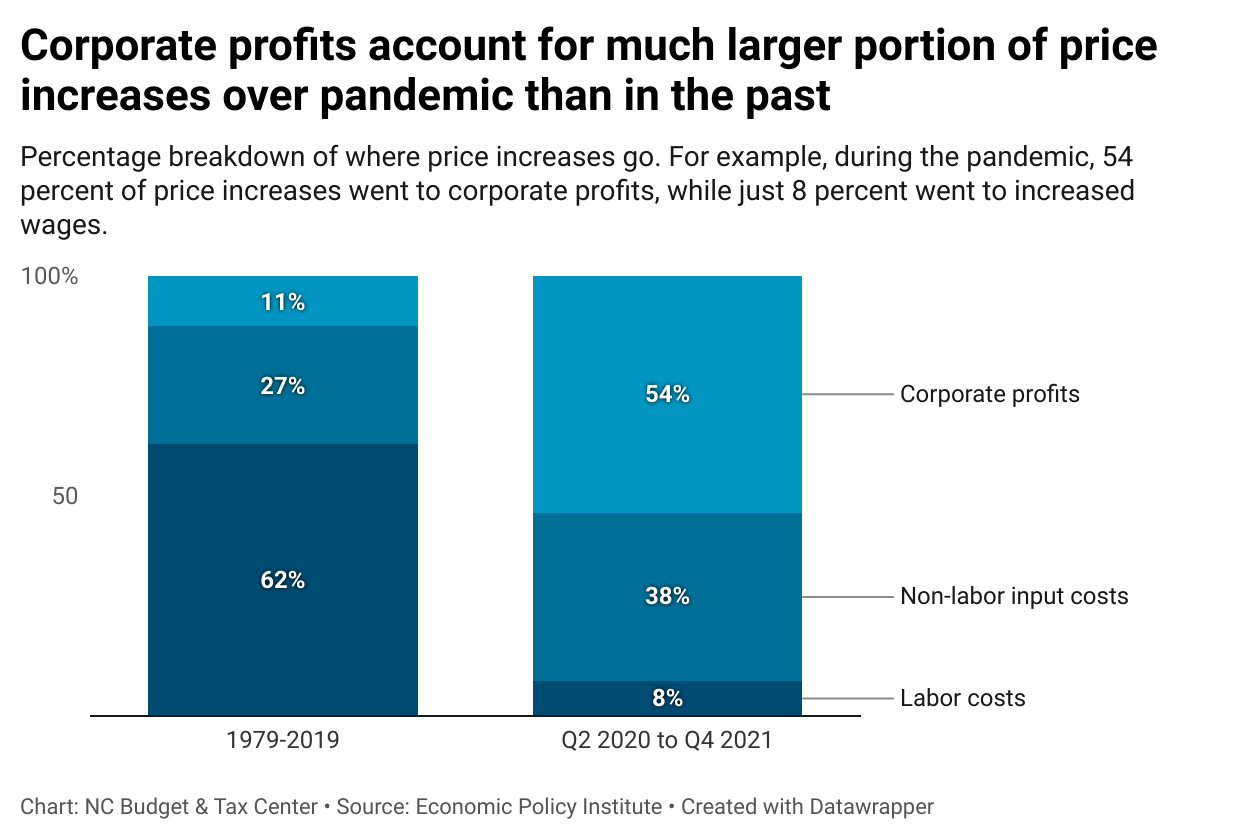
This Labor Day, workers feel the pinch of inflation as corporations rake in record profits
Working people are facing rising costs for basics like food, gas, and housing, and their wages are not keeping up.
Despite the successes of working people to organize and demand for better pay and working conditions in North Carolina and across the country, policymakers have not set economic rules that value work and hold corporate profiteering in check.
The result is an economy growing without widespread benefits for the people. Workers of color have been particularly blocked from the employment recovery that has happened after disproportionately experiencing the challenges of essential work during the depths of the public health crisis.
This Labor Day, we are following two key trends that define the state of working in North Carolina.
Workers’ wages fall short of what it takes to make ends meet. As my colleagues Logan and Patrick noted in a recent post, a median worker’s earning do not cover the cost of necessities for a parent with one child in any of North Carolina’s counties.
A closer look at just how wages have changed over time shows that North Carolina workers at the median and below have seen their wages grow much slower than those workers at the top of the wage distribution. North Carolinians in the bottom tenth of the wage distribution saw their wages increase when adjusting for inflation by just $1.80 from 1979 to 2022 while North Carolinians in the top tenth saw their wages increase by $21.
Uneven wage growth drives up income inequality, and that drives down the long-term performance of the economy.
This is not an accident. It is a policy choice.
The purchasing power of the federal minimum wage has fallen significantly due to inaction on the part of policymakers. As the Economic Policy Institute reports, its value has fallen to the lowest point in 66 years. State lawmakers in North Carolina have not taken action to adjust the state minimum wage — unlike lawmakers in 26 states who have done so in 2022 alone.
North Carolina’s workforce faces a pay penalty for working in this state.
Meanwhile, corporate profits are rising. A look at corporate profit growth compared to the growth in median worker wages shows the lopsided gains during the pandemic. Corporate profits are at the highest they had been since the 1940s. Over the course of 2021, corporate profits soared by 25 percent while workers in the middle of the distribution of all workers experienced a wage decrease from 2020 to 2021 of 2 percent, not adjusting for inflation.
Profitable corporations are benefiting from rising prices even as inflation is making it harder for workers to afford the basics. Analysis by the Economic Policy Institute found that: “for every dollar in price increases, 54 cents went toward corporate profits, while just 8 cents went to increased wages.”
Across the country and abroad, policymakers are considering a windfall tax on corporate profits to hold in check profiteering and increasing affordability of child and elder care and providing resources directly to those that need help now.
This Labor Day, we cannot just call for action on the minimum wage. We must also demand corporations pay what they owe.



